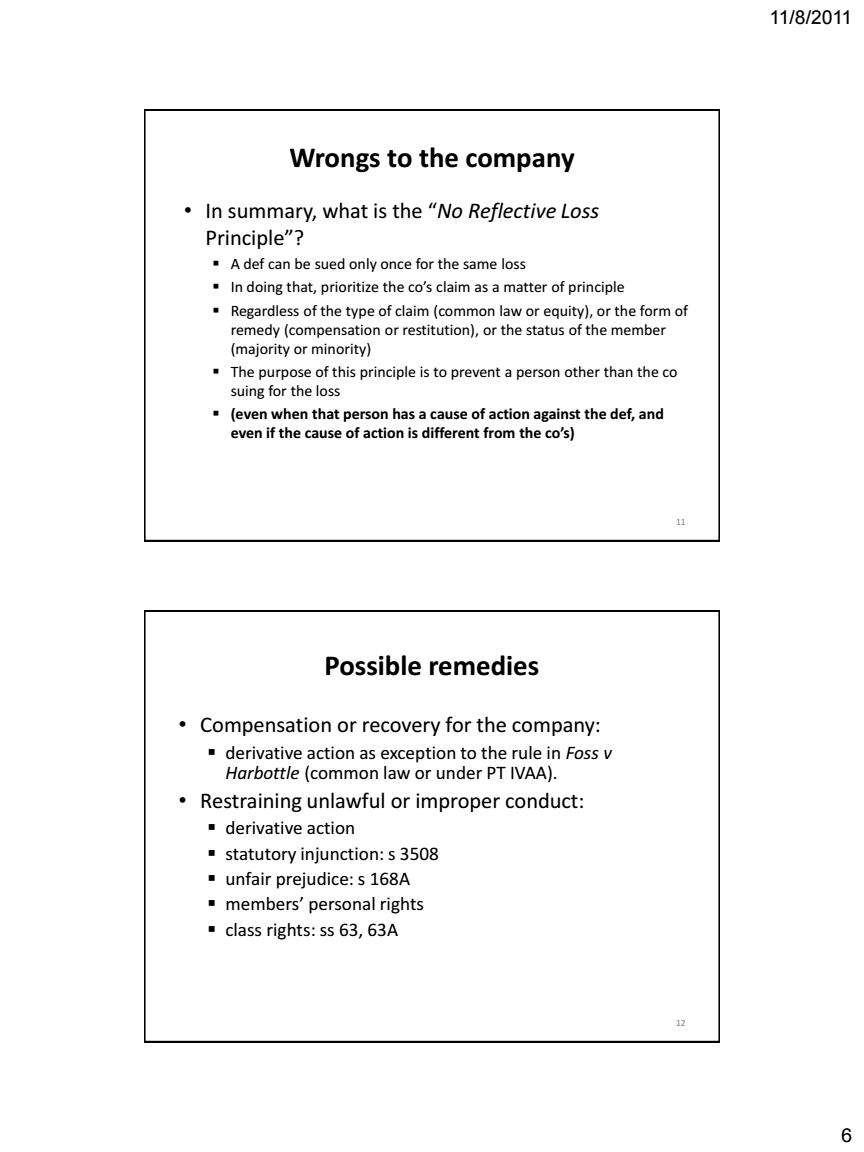正在加载图片...

11/8/2011 Wrongs to the company ·In summary,what is the“No Reflective Loss Principle"? A def can be sued only once for the same loss In doing that,prioritize the co's claim as a matter of principle Regardless of the type of claim(common law or equity),or the form of remedy (compensation or restitution),or the status of the member (majority or minority) The purpose of this principle is to prevent a person other than the co suing for the loss (even when that person has a cause of action against the def,and even if the cause of action is different from the co's) 11 Possible remedies Compensation or recovery for the company: derivative action as exception to the rule in Foss v Harbottle(common law or under PT IVAA). Restraining unlawful or improper conduct: derivative action statutory injunction:s 3508 unfair prejudice:s 168A members'personal rights class rights:ss 63,63A 611/8/2011 6 11 Wrongs to the company • In summary, what is the “No Reflective Loss Principle”? A def can be sued only once for the same loss In doing that, prioritize the co’s claim as a matter of principle Regardless of the type of claim (common law or equity), or the form of remedy (compensation or restitution), or the status of the member (majority or minority) The purpose of this principle is to prevent a person other than the co suing for the loss (even when that person has a cause of action against the def, and even if the cause of action is different from the co’s) 12 Possible remedies • Compensation or recovery for the company: derivative action as exception to the rule in Foss v Harbottle (common law or under PT IVAA). • Restraining unlawful or improper conduct: derivative action statutory injunction: s 3508 unfair prejudice: s 168A members’ personal rights class rights: ss 63, 63A